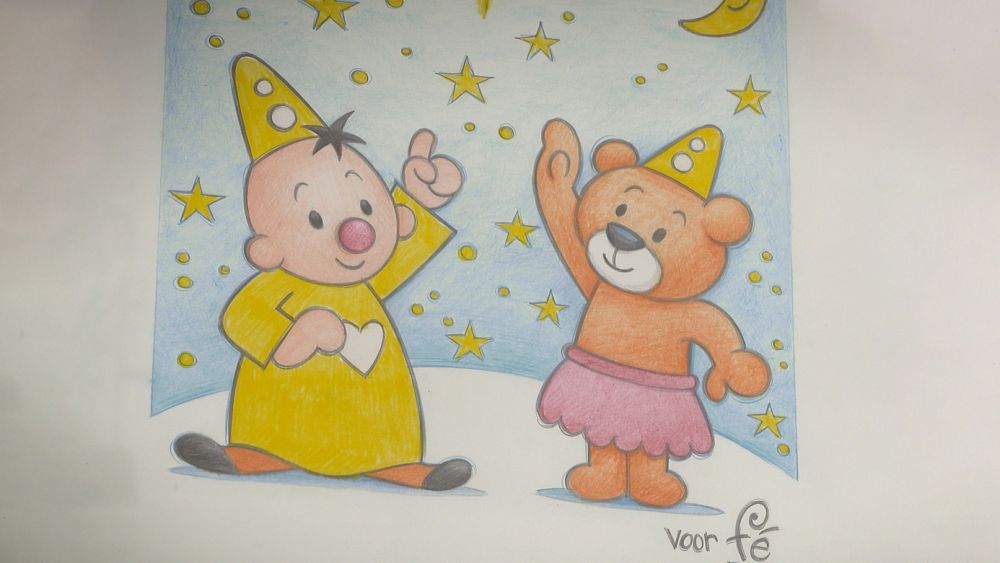
Some 35,000 children are diagnosed with cancer every year in the EU.
After spending months in the hospital, Fé was not getting better. Her parents then noticed she was losing motion in her left arm. This triggered doctors, and an x-ray found that she had a tumour in her brain.
“Then they sent the tumour to the lab,” explains Sam Daems, Fé’s father from his home in Geel, Belgium. “And five days later they brought us the news that the tumour was actually an aggressive type of brain tumour, called ATRT. [It’s] a very rare indication, which doesn’t occur that often at all in children. But when you are diagnosed, with that malignancy, you know that you really don’t have a lot of options.”
Fé passed away some 6 months after the diagnosis after undergoing chemo and radiotherapy.
She was just 2 years old.
Fé is not an isolated case
Some 35,000 children are diagnosed with cancer every year in the EU.
Incidence can amount to almost 18 cases for every 100,000 children and young adults.
For Fe’s father, Europe’s way of treating cancer in children is beyond outdated and we are far behind.
“All of these therapies, they are technologies of the middle of the last century. The chemotherapy compounds, they were developed in the 60s of the last century and they are still used today to attack these tumours, because there is not more precise therapeutic available in the clinical world today.”
For some types of paediatric cancer, there is no effective treatment – or no treatment at all. Some therapeutical approaches have changed little in the last 30 years.
Further research, investments and regulatory efforts are thus imperative, claims a foundation advocating for more action against paediatric cancer.
The Kickcancer Foundation is pushing for further research and investment against paediatric cancer.
“We need to cure certain types of cancer,” says Delphine Heenen, the founder and managing director of the foundation. “Some patients we know today when they are diagnosed that they will never be cured from cancer. And yet, they don’t have access to new drugs, and there is not ongoing research to look for new drugs for those children.”
Heenen continues: “So we need new drugs to cure certain children with cancer . Then, many children with cancer will survive and will be cured, but the treatments are very toxic in the short term. So the treatments are very long, and very hard. It means that young people are taking out of the social life, school, and that is very hard at a stage in your life where you need to develop”.
What is the EU doing?
Aware of the needs against cancer and other paediatric diseases, the European Commission’s pharmaceutical reform wants paediatric studies finalised within 5 years of the initial marketing authorisation so products reach child patients more quickly. The EC has also proposed that all new medicines that might be of interest for children are indeed screened for their use in them.
Simplifying procedures, increasing transparency and enhancing networking between patients, families, academics and medicine developers should also help speed up the authorisation of medicines for children, the Commission claims.
“Children are not small adults,” says Stella Kyriakides, the European Commissioner for Health and Food. “Children need frequently totally different treatments and medicines. We have put children and young adults in the spotlight by providing different incentives, by rewarding innovation, in order to have more research and development”.
For Fé’s father Sam, a solution is possible.
“And if you combine pharma with [the] public and you create a structure where they can pull resources and they can better target paediatrics, it should be possible. It is not sending a rocket to Mars either.”
“It is something for which you need hundreds of millions. But not hundreds of billions of euros. It is not outside of the realm of reality, I think, to expect that something is going to work in the next 5 to 10 years”. Daems concludes.
